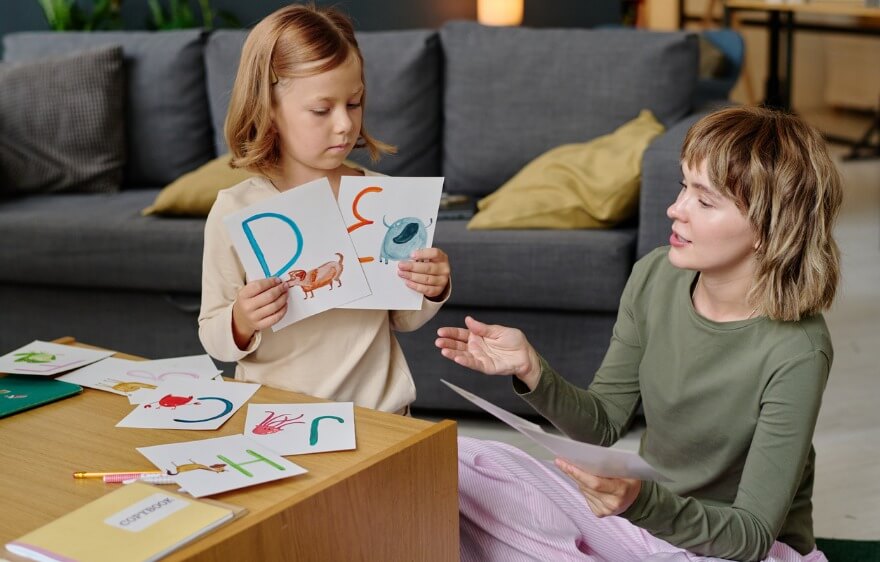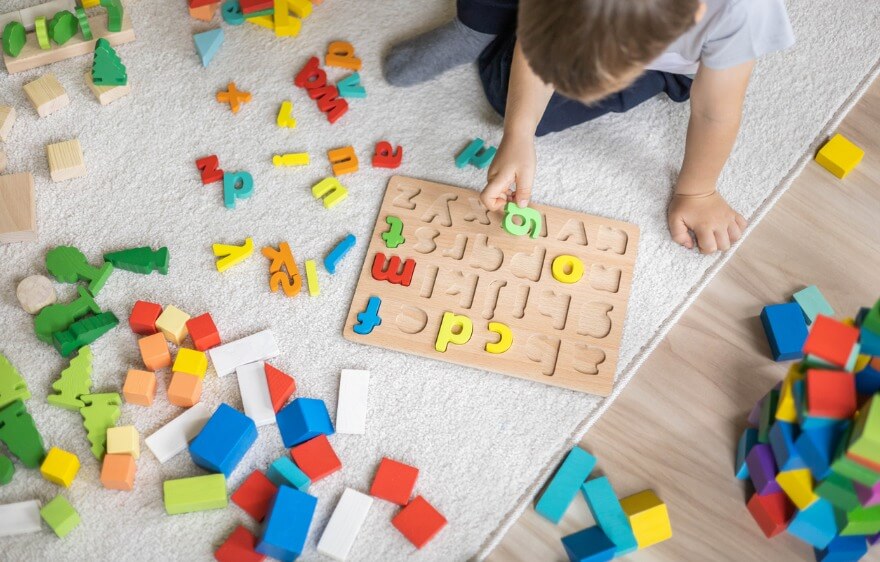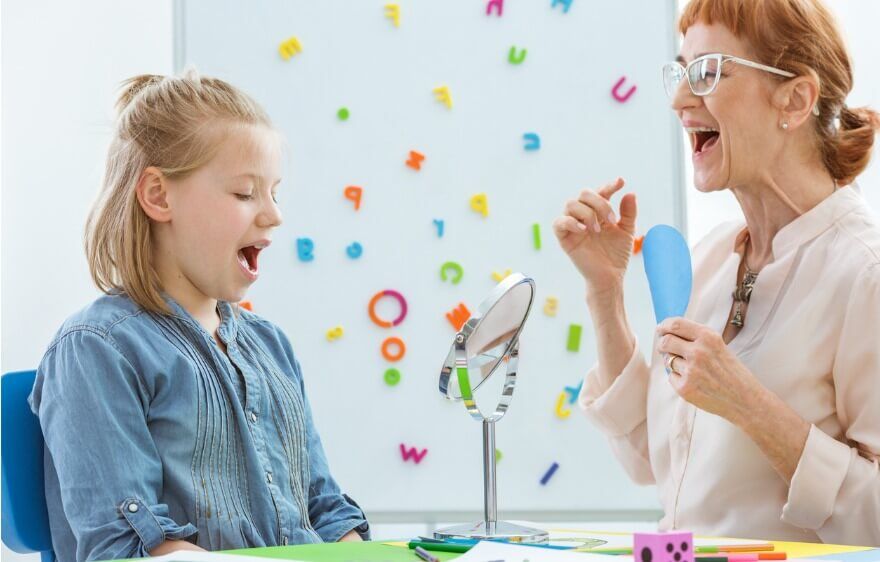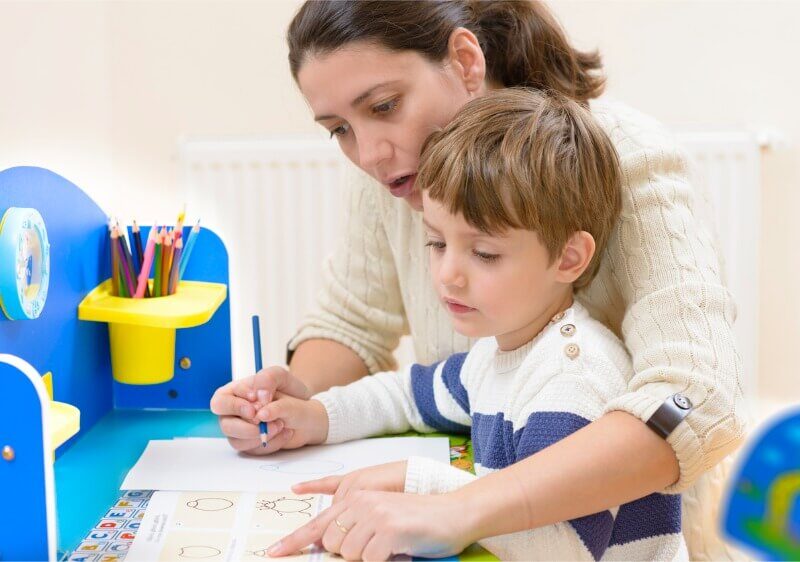Speech development is an essential milestone for every child, but not all children progress at the same pace. For those who need a little extra support, speech therapy exercises can make a world of difference. These activities are effective, engaging and fun, making learning feel less like work and more like play. If you’re a speech-language pathologist (SLP), this guide offers practical exercises to encourage a child’s communication growth.
Let’s explore the importance of speech therapy, why targeted exercises matter, and 15 effective speech therapy exercises you can incorporate into your sessions or daily routine.
Why Are Speech Therapy Exercises Important?
Speech therapy focuses on helping individuals overcome speech, language, and communication challenges. For children, it’s often about addressing issues like articulation (forming sounds correctly), fluency (smoothness of speech), and expressive or receptive language skills. The goal is to build confidence, improve communication, and set them up for lifelong success.
Exercises play a crucial role in speech therapy because they provide structured opportunities for practice. Just like learning to ride a bike, improving speech takes repetition and consistency. Tailored activities help children reach key speech therapy goals, including strengthening the muscles used for speech, developing clearer articulation, and boosting language comprehension. And when exercises are fun, kids are more likely to stay engaged!
15 Effective Speech Therapy Exercises
Here’s a list of engaging and practical speech therapy exercises that you can use to help improve a child’s speech development.
1. Blowing Bubbles
Blowing bubbles isn’t just a fun outdoor activity — it’s also a great way to strengthen oral muscles. The act of blowing helps build control over the breath, which is essential for producing sounds. Encourage kids to blow bubbles slowly and steadily, and you can even turn it into a game by having them aim the bubbles toward specific targets.
2. Tongue Twisters
Tongue twisters are a fantastic way to practice articulation and improve clarity. Start with simple phrases like “Red lorry, yellow lorry” or “She sells seashells.” Gradually increase the complexity as the child’s skills improve. Make it a game by seeing who can say the tongue twister fastest!
3. Mirror Work
Children often benefit from seeing how their mouths and tongues move when they produce sounds. Sit together in front of a mirror and practice specific sounds or words. For example, you might focus on “L” sounds, exaggerating the tongue placement so the child can mimic it.
4. Sound Games with Flashcards
Flashcards featuring pictures of objects or animals can be used to practice specific sounds. For instance, use cards with words that begin with “B” (like ball or banana) and encourage the child to repeat the words after you. You can even turn this into a scavenger hunt where they find objects around the house that match the sound.
5. Singing Songs
Music is a fantastic tool for speech therapy. Singing familiar songs, like nursery rhymes, helps improve rhythm, articulation, and vocabulary. Songs with repetitive lyrics, such as Twinkle, Twinkle Little Star, encourage kids to repeat phrases and build confidence in their speech.
6. Blowing Through a Straw
Have the child blow through a straw to move small objects like a cotton ball or a piece of paper. This activity strengthens the lips and encourages proper airflow, which is critical for speech production. It’s also great for teaching control and coordination.
7. Animal Imitation Games
Kids love pretending to be animals, so why not make it a speech therapy exercise? Have them mimic animal sounds, like “moo” for a cow or “woof” for a dog. These simple sounds are often easier to produce and help children practice using their voices in different ways.
8. Reading Aloud Together
Reading aloud is a wonderful way to improve language skills. Choose books with repetitive phrases or rhyming patterns. Pause during the story to let the child fill in the blanks or repeat sentences after you. This helps with both comprehension and verbal expression.
9. Blowing Kisses
Blowing kisses might seem simple, but it’s a sneaky way to build the muscles around the mouth. Encourage kiddos to exaggerate the “puckering” motion and make a clear smacking sound when blowing kisses.
10. Playdough Speech Shapes
Combine hands-on fun with speech practice by molding playdough into shapes that correspond to target sounds, such as making a “snake” for the “S” sound. While shaping the playdough, practice saying the sound or word together.
11. Describe and Guess
Turn everyday objects into a guessing game. Hold an object, describe it aloud, and ask the child to guess what it is. For example, “This is something you use to eat soup. It’s round and shiny.” This activity promotes vocabulary development and descriptive language skills.
12. Straw Mazes
Create a maze on a table using straws and have the child blow a ping-pong ball or small object through it. This strengthens breath control and makes therapy time fun and interactive.
13. Bubble Wrap Popping
Place a sheet of bubble wrap on a flat surface and assign a sound or word to each bubble. Have the child say the sound or word before popping the bubble. This activity combines sensory fun with speech practice, making it an engaging way to work on articulation.
14. Story Sequencing
Use picture cards to create a simple story sequence. Ask the child to arrange the cards in order and describe what’s happening in each step. This activity helps improve key SLP skills, including storytelling, vocabulary, and sentence structure.
15. Simon Says
Play a classic game of Simon Says with a speech therapy twist! Incorporate verbal instructions focusing on specific sounds or words, such as “Simon says, say ‘jump’ three times” or “Simon says, touch your ‘nose.’” It’s a great way to practice listening and articulation while having fun.
Tips for Making Speech Therapy Exercises More Fun
Making speech therapy enjoyable is key to keeping kids engaged and motivated. Here are a few simple tips to turn exercises into exciting, confidence-boosting experiences!
- Use Rewards: Offer stickers or small prizes for effort and improvement to keep kids motivated.
- Incorporate Interests: Tailor exercises to things your kiddos love, such as superheroes, animals, or favorite songs.
- Be Patient: Speech development takes time, so celebrate small wins along the way.
- Practice Daily: Consistency is key — integrate speech therapy exercises into daily routines for the best results.
Achieving Success with Speech Therapy Exercises
Speech therapy exercises are powerful tools that can help unlock a child’s potential, one sound at a time. By incorporating fun, engaging activities into their routine, you’re improving their speech development and boosting their confidence and communication skills.
If you’re an SLP, these exercises are a great starting point for making progress in a child’s speech journey. Remember, the key is to make it enjoyable and celebrate every big and small milestone. With dedication and creativity, speech therapy can be a rewarding experience for you and the child.
So, what are you waiting for? Grab some bubbles, books, or playdough, and start practicing these speech therapy exercises today!
A core part of the Care Options for Kids mission is connecting families and pediatric speech therapists to reach developmental goals and improve quality of life. We recruit and support dedicated specialists who provide the best in-home care, empowering children to reach their potential and have fun along the way.
Join the Care Options for Kids Team!
Are you ready for meaningful work that comes with benefits and not burnout? Join the compassionate care team that helps children and families live their best lives. Our clinicians provide best-in-class pediatric nursing, therapy, and school-based services. We bring individualized care to children where they live, work, and play. We have opportunities in homes, schools, and clinics across the country.
Apply at Care Options for Kids now. We make it easy to start so you can make a difference as soon as possible.






